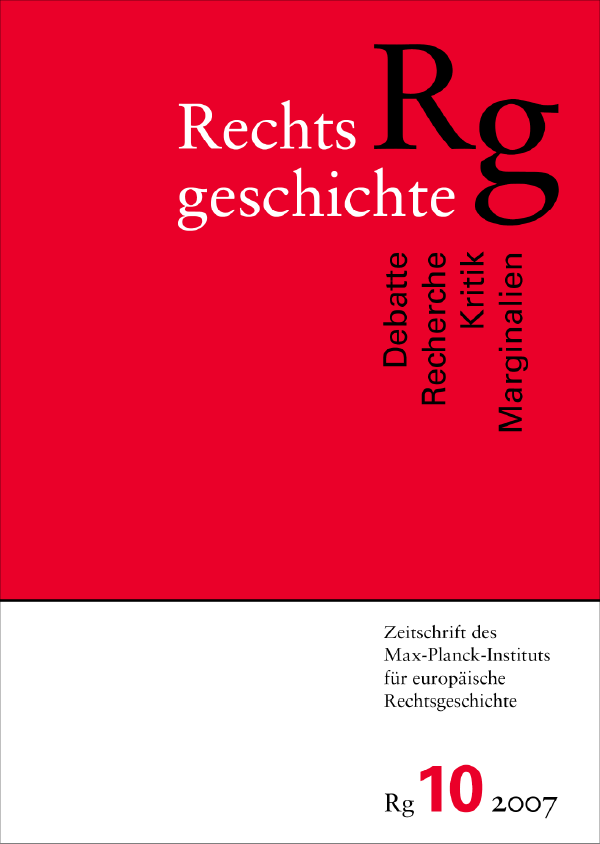Der gescheiterte Codex
Überlegungen zur Kodifikationsgeschichte des Codex Theodosianus
DOI:
https://doi.org/10.12946/rg10/112-126Abstract
The Codex of Emperor Theodosius II, dating from the 5th century A.D., is generally considered to be a failed piece of legislation; as a law book, however, it was quite successful. By looking at Theodosius’ failure, this essay tries to establish general criteria for making a distinction between successful codification projects and unsuccessful ones. Instead of following a more traditional approach by telling the success story of a given codification, the study focuses on a »pathological« legal project. In the Eastern part of the Roman Empire, it lacked a sufficient amount of »internal«, intrinsic authority, because it encompassed too many outdated laws while neglecting the binding character of the ones actually in force. By forgoing the establishment of a hierarchical order of norms, however, a codification’s ability to function is severely diminished. In the Western half of the Empire the situation was somewhat different: here the Codex Theodosianus met with an unstable political situation; under these circumstances it never had a chance of functioning properly. After all, a codifi cation is not a suitable remedy against the loss of political, i.e. »external« authority.
Downloads
Veröffentlicht
Zitationsvorschlag
Ausgabe
Rubrik
Lizenz
Copyright (c) 2007 Autor/in

Dieses Werk steht unter einer Creative Commons Namensnennung - Nicht-kommerziell - Keine Bearbeitung 3.0 International -Lizenz.





